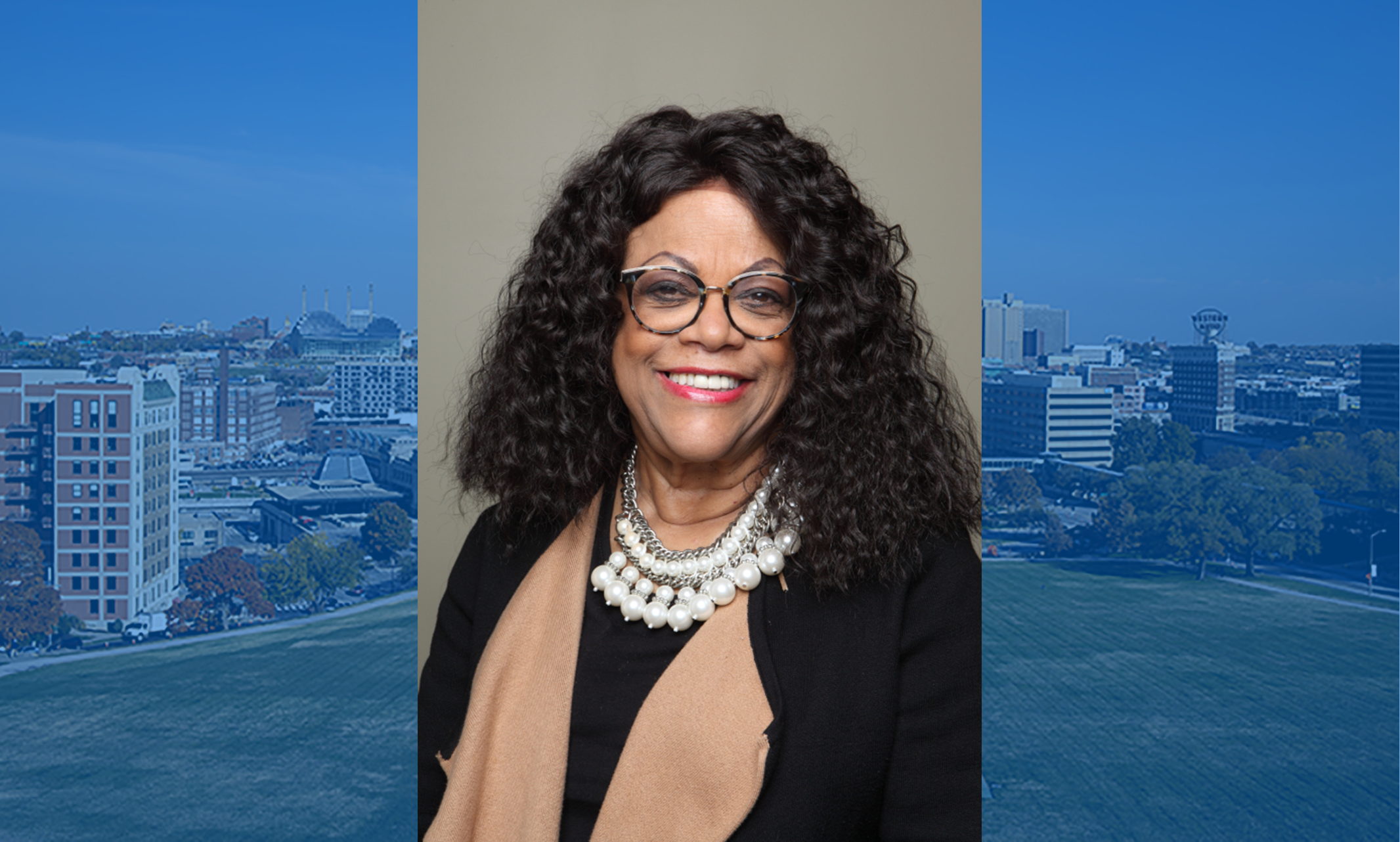Each year, the UMKC Alumni Association recognizes the achievements of outstanding alumni with an awards celebration. The Spotlight Award recognizes the excellence of a member of our UMKC community whose accomplishments, leadership and public service have caused regional and national attention to be focused on the university and the metropolitan area. This year, the Alumni Association is honoring Carmaletta Williams (B.A. ’84, M.A. ’87), Ph.D., with its Class of 2024 Alumni Spotlight Award.
Williams earned her bachelor’s and master’s degrees in English from UMKC. She boasts a 28-year-long career teaching English and African American Studies at Johnson County Community College, where she also served as the founding Executive Director of the Office of Diversity, Equity and Inclusion. In addition, she received an Emmy for her portrayal of Zora Neale Hurston in “Zora Neale Hurston: Queen of the Harlem Renaissance.” She currently serves as the executive director of the Black Archives of Mid-America.
“Dr. Williams is engaged in extremely important work in this community,” said Diane Mutti Burke, Ph.D., director of the UMKC Center for Midwestern Studies and co-director of the UMKC Center for Digital and Public Humanities. “The Black Archives of Mid-America, with Dr. Williams at its helm, is one of the most significant institutions engaged in the preservation and dissemination of the history of Black Kansas Citians, a community of great national historic significance.”
It was clear speaking to Williams that her work is not slowing down any time soon.
What inspired your interest in English literature and a career in teaching?
My goal as a child was to become a writer. My mother told me that was well and good, but I needed to be sure that I had a regular income to support myself. She suggested that I be a teacher who writes. I always considered myself a writer who taught.
In what ways do writers and poets of color uniquely contribute to the English literature genre and to our shared global community?
Writers have an obligation to pull their readers into the work and have them share the experiences that they are sharing. Because the largest oeuvre of American literature is of the white European writers, Black writers and writers of other ethnic backgrounds have a unique perspective of life and lived experiences that they have to make accessible for people who share their heritage and for others wanting to learn more.
You received an Emmy for your portrayal of Zora Neale Hurston on PBS. Is acting a new pursuit for you, and do you plan to continue?
Acting is not new. I have been performing as Zora Neale Hurston for over two decades now. I performed in church as a small child and in high school plays. Teaching is certainly performance. Today’s students, especially, were raised on television, so they need to be “entertained” as they are taught. Developing pneumonic devices so students can remember the information presented in the classroom takes a bit of the same artistry and creativity that I use in performances – I try something, gauge student reactions, and if positive I repeat it, if not, I try something else. The goals is to help them to understand the information. If students understand, they will remember.
What drew you to teaching internationally and bringing English literature to students around the world?
There is a big world out there filled with people who surely want to know more about the American experience. I gladly share this with them. And as I teach . . . I learn.
What advice do you have for students who would like to follow in your footsteps?
Although I would be deeply flattered if any of my students told me they would like to follow in my footsteps, I would advise any one of them to chart their own paths. Their talents and goals are different from mine, and probably superior, so they need to develop their own means of achieving their goals.
How did UMKC prepare you for/contribute to your success?
My mother and grandmother repeatedly told me that the purpose of an education was to teach me how to learn. UMKC reinforced that. I learned that no matter what I decided to do with my life, or how I was to earn my living, that the basics were given to me. I just had to instill them and adapt them to my life’s choices.

